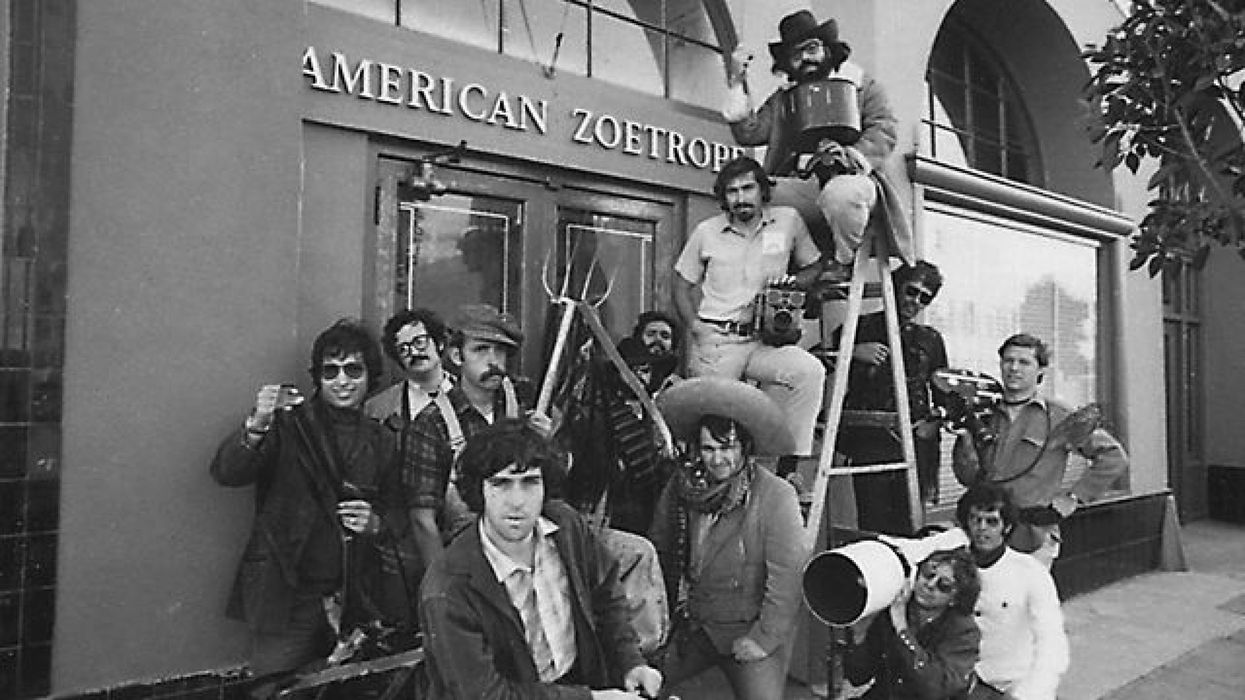How Did Coppola's American Zoetrope Almost Change Hollywood?
Francis Ford Coppola gets a ton of credit for being an amazing director, but he was almost the most important producer in Hollywood.

When you're bringing up directors who might be considered as the greatest of all time, Francis Ford Coppola's name eventually hits the list. The man behind the Godfather trilogy, The Conversation, and Apocalypse Now has left his mark on Hollywood and continues to churn out indie movies as part of his auteur style.
But there was one thing Coppola did that almost revolutionized Hollywood, and I think maybe changed the fate of filmmakers as well.
In 1969, after doing studio movies and deciding he wasn't a fan of the system, Coppola opened American Zoetrope. It was his own production shingle in San Francisco. His goal was to take chances on the weird and wild movies that studios usually turned away.
The results... were mixed. But it changed the way filmmakers think about cinema and you can see it in action today.
Check out this doc on Coppola below from Patrick (H) Willems, it really enlightened me on Coppola's career as well as Zoetrope.
How Did Coppola's American Zoetrope Almost Change Hollywood?
American Zoetrope burst onto the scene with George Lucas' THX 1138 and it did not go well. In order to make the money back, they lost on that film, Coppola and Zoetrope took The Godfather. It was a real happy accident he got the gig. In an interview between Coppola and The Rumpus, he talks about how he grew into The Godfather, "In my earlier career I liked The Rain People because that was my first film where I got to do what I wanted to do. I was young; I wrote the story based on something that I had witnessed. Few people know that film—Then I made The Conversation, which was an original as well. That’s what I wanted to be doing."
He wanted to be doing these personal movies, so he built a company that let him. After the runaway success of The Godfather, and his runaway success producing American Graffiti, Coppola had enough money to do whatever he wanted.
That led to the 1970s with a filmmaking lineup that was almost incomparable.
A Filmmaking Paradise
And this success was almost all accidental. As Coppola puts it, "The Godfather was an accident. I was broke and we needed the money. We had no way to keep American Zoetrope going. I had no idea it was going to be that successful. It was awful to work on, and then my career took off and I didn’t get to be what I wanted to be—I wanted to be a guy who made films like The Rain People and The Conversation. I didn’t want to be a big Hollywood movie director."
Coppola used this clout to produce passion projects from avant-garde directors such as Jean-Luc Godard, Akira Kurosawa, Wim Wenders, and Godfrey Reggio. According to Wikipedia, "Four films produced by American Zoetrope are included in the American Film Institute's Top 100 Films. American Zoetrope-produced films have received 15 Academy Awards and 68 nominations."
Nowadays, it's not uncommon for a filmmaker to have their own production shingle that helps keep their brand secure and allows them to produce projects they believe in, but back then it was revolutionary. There were ups and downs, but Coppola seemed to be far ahead of the game.
Not only was he making movies, but he was letting people work only four days a week. He had massive company-wide parties on Friday nights and even a film school that was educating the next generation of filmmakers.
The crew loved the job, fair pay, and benefits so much that they frequently put in extra hours for free just to see their films get finished.
American Zoetrope was a filmmaking paradise. A real lesson for what filmmaker-driven production companies should look like today.
So what happened?
Along Came One From the Heart
Well, a little movie called One From the Heart bankrupted them. The movie grossed $389,249 on its first weekend in 41 theaters, with a total gross of $636,796, against a $26 million budget. It was a huge disaster.
The grand experiment basically died there. American Zoetrope stuck around, but it didn't have the clout of studios eager to help them finance things after.
But look at their legacy.
Places like Dreamworks, Scott Free, Amblin, Imagine, and even Blumhouse are just much bigger versions of this idea. They develop for specific filmmakers and their friends, although they take far fewer chances on indie projects and make it a point to not bet the farm on one movie.
So in a way, Coppola's influence really did change the way Hollywood looked at filmmakers and filmmakers looked at the studio system.
While Zoetrope is not the same as it was, the lesson is still there for our taking.
What do you think of Coppola's experiment?
Let me know in the comments.











